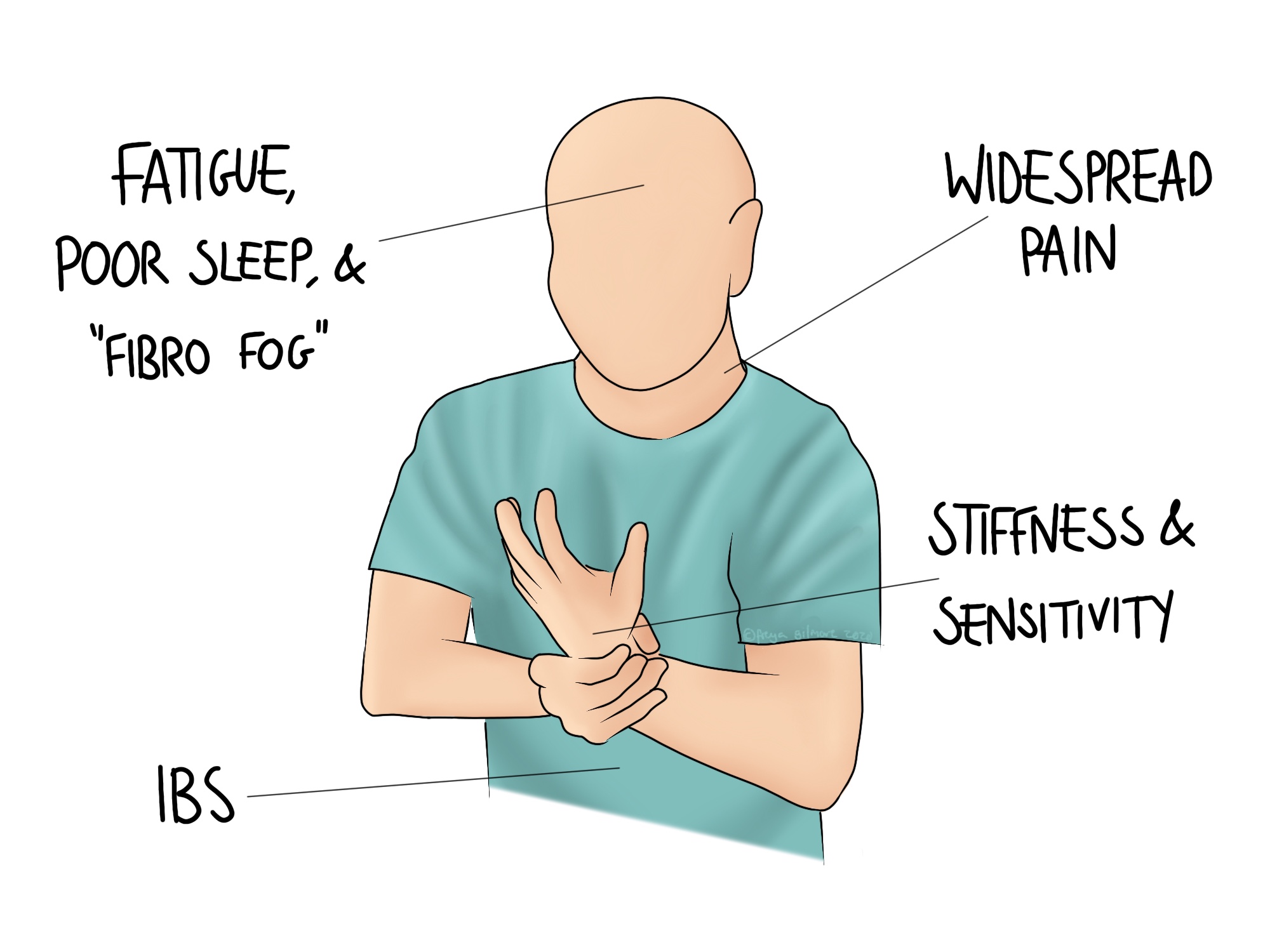25 November 2020
Fibromyalgia

Fibromyalgia is a mysterious condition. We could describe it as faulty pain processing, seemingly brought on by stressful or emotionally traumatic events. There may also be a genetic link. Women are diagnosed more frequently than men, and onset typically starts between the ages of 30-50.

Fibromyalgia is hard to diagnose as it cannot be directly tested for. It was previously diagnosed by identification of specific tender spots, but this is outdated. Experts generally agree that pain must be above and below the waist.
Its main features are:
- reduced pain threshold
- pain in response to typically non-painful stimuli
What Causes Fibromyalgia?
The truth is that no one knows. Technically fibromyalgia is a collection of MUS (Medically Unexplained Symptoms), although some find giving it a label is reassuring.
The two main school of thoughts are that the causes are neurological or psychological. We know that neurology affects psychology and vice versa, so chances are it's a combination of the two.
Symptoms and Stress
The symptoms of fibromyalgia fall overlap with those in central sensitisation. This is where the nervous system becomes more sensitive, and pain is magnified. Central sensitisation is typically linked to stress or emotional factors. This is relevant to both the onset of fibromyalgia, and the waxing and waning nature of it. Although fibromyalgia does not progress, it does get worse in times of high stress, and better in others.
With these ideas of stress in mind, we find that central sensitisation often goes hand in hand with the “fight or flight” response. This is a reaction that does not suit modern life. Its role in survival is to get us out of dangerous situations, so it isn’t very useful in response to stress at work. Part of this response is to divert blood supply away from the digestive system and towards muscles. In the long term, this causes gastric dysfunction. So it isn’t surprising that IBS is a common part of the picture in fibromyalgia.
Other symptoms include:
- anxiety and depression
- poor sleep
- difficulty concentrating
Management of Fibromyalgia
One of the most powerful treatments for fibromyalgia is a gentle road to aerobic exercise. Your osteopath can work with you to come up with a plan for this.
The neurological and psychological systems can both benefit from touch, so hands on treatment might help you too. Finally, you might feel better after talking to someone about the condition without fear of judgment. We can absolutely provide that too.
Book here to see how we can help.
Learn more
At Ilminster Osteopathy my goal is to help people achieve their goals whatever they may be. Watch our video to find out more.

